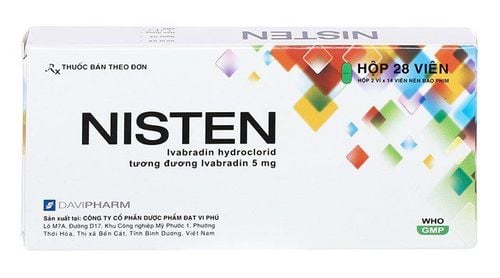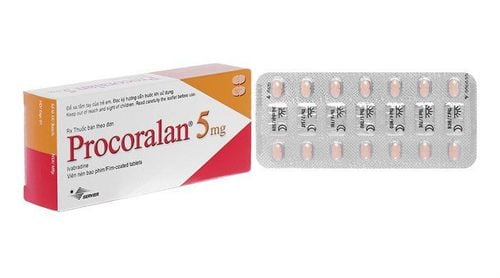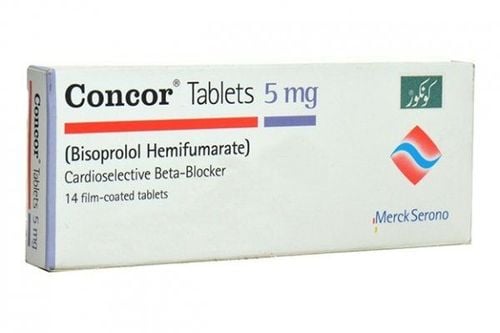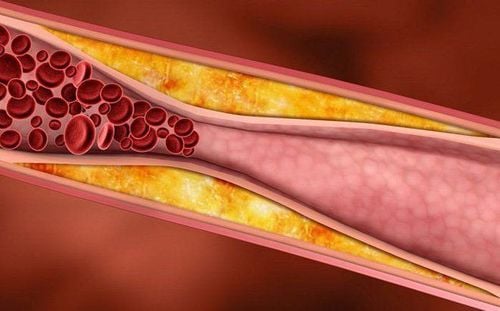This is an automatically translated article.
The article was professionally consulted by Dr. Le Duc Hiep and Nguyen Xuan Thanh - Cardiology Center, Vinmec Times City International HospitalCoronary artery disease is the number one cause of death from cardiovascular diseases today. Worldwide, every year 4 million people are hospitalized for coronary artery disease; in which, 25% died in the acute stage of the disease. This disease reduces quality of life, seriously affects patients' health, even causes death if not detected for timely treatment.
1. Prevalence of coronary heart disease in the elderly
Old age and changes in life have greatly affected the living habits of Vietnamese people, which may be one of the reasons for the increase in the rate of coronary artery disease in our country.The average life expectancy of Vietnamese people is >60 years old, in the US and developed countries it is >65 years old. In particular, through autopsy, it was found that more than 70% of people over 70 years old had coronary artery disease. Aging is a major risk factor for cardiovascular disease in general and coronary artery disease in particular.
Cardiovascular risks increase with age. Research shows that in people over 70 years of age, there is more than 10% risk of coronary events. Coronary heart disease is the leading cause of death in patients over 65 years of age.
2. Manifestations of coronary heart disease in the elderly
The main manifestation of coronary artery disease is chest pain, especially chest pain on exertion. This is a classic manifestation in young people, but not so in the elderly, the exercise capacity of the elderly is poor or even the elderly do not have pain on exercise due to a long-standing narrowing of the coronary arteries and have been diagnosed with coronary artery disease. adaptive. Pain symptoms are also atypical in the elderly, such as shoulder pain, back pain, epigastric pain, some elderly people have cognitive problems, confusion, so it is difficult to identify pain symptoms.Coronary disease symptoms will be masked by other diseases caused by the elderly having multiple comorbidities, which will be difficult to assess. It is also difficult to ask and examine the elderly because of the lack of cooperation and coordination, so asking the patient through family members, especially caregivers, is very important and effective to obtain information to serve the elderly. treatment course.
Coronary artery injury is common in the elderly and there is also an adaptation to such chronic lesions. However, special attention should be paid because the potential risk of myocardial infarction occurs at any time, especially in patients with multiple comorbidities and predisposing coronary disease such as hypertension or diabetes. Street. Manifestations of myocardial infarction in elderly patients are not as typical as in younger patients. Symptoms can be vague such as fatigue, restlessness, and insomnia can also be more obvious such as severe chest pain, shortness of breath, nausea. vomiting or very severe manifestations such as hypotension, syncope, shock, coma, circulatory arrest. Therefore, it is extremely important to detect unusual symptoms and get the patient to a medical facility early.
Although the elderly and young people have the same risk factors for disease, when infected, the risks and dangers in the elderly are much greater. Currently, the rate of coronary disease control is tighter, but the mortality rate from coronary heart disease is still high, especially in people over 65 years of age.
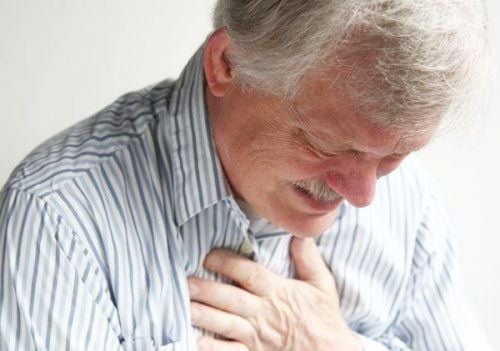
Biểu hiện chính của bệnh mạch vành là đau ngực.
3. Care for coronary heart disease in the elderly
Using the right medicine, in the right dose, and detecting the signs of side effects of the treatment helps to control the risks of treatment. Many people are subjective in treatment because they think that after intervention or surgery, coronary artery disease has been cured. There are many post-stent hazards that patients need to face. In which the risk of bleeding, or blood clot formation, and the possibility of re-occlusion is very great if not treated well.Therefore, doctors note, coronary heart disease in the elderly needs to use anticoagulants for a period of 6 months - 1 year as directed by the doctor. If you experience side effects of the drug, you need to go back to the doctor to have the doctor adjust the dose, the drug is more suitable. Coronary artery bypass grafting method - the procedure to create a bridge over the narrow point of occlusion - significantly reduces the symptoms of angina, reduces mortality and prolongs patient's life. However, after 10 years, the part of the blood vessel used for bridging may be aging and narrowed, the patient must pay attention to examination and treatment according to the doctor's instructions.
Patients with coronary heart disease should exercise moderately, should not be too strenuous, but need to maintain it regularly every day to increase the endurance of the heart and develop collateral circulation.
Changing eating habits is also not a simple matter. Because the elderly often live with their children and grandchildren, a strict diet is more difficult to follow. Patients need to quit smoking, stimulants, add more vegetables and fruits, whole grains, reduce salt, reduce fat will increase the chance of living a long life.
To protect cardiovascular health in general and detect early signs of coronary heart disease, customers can sign up for the Cardiovascular Screening Package of Vinmec International General Hospital. The examination package helps to detect cardiovascular problems at the earliest through tests and modern imaging methods. The package is for all ages, genders and is especially essential for people with risk factors for cardiovascular disease.
Why should you choose Cardiovascular Screening Package at Vinmec International General Hospital?
Simple and quick procedure. Enthusiastic advice and support, reasonable and convenient examination process. Comprehensive facilities, including a system of clinics and consultations, blood collection rooms, dining rooms, waiting areas for customers,... Highly qualified medical staff, Professional working style, dedicated and attentive.
Please dial HOTLINE for more information or register for an appointment HERE. Download MyVinmec app to make appointments faster and to manage your bookings easily.




